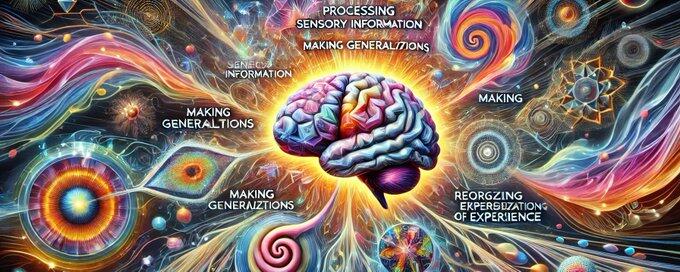Introduction
Self-reflexivity, the ability to reflect on one's own thoughts, feelings, and behaviors, is a hallmark of human consciousness. This meta-cognitive capability allows individuals to analyze and modify their mental processes, essentially enabling them to "rewrite their own software." Understanding self-reflexivity provides profound insights into the adaptive and transformative potential of human consciousness. This article explores the concept of self-reflexivity, its role in consciousness, and how it empowers humans to shape and enhance their cognitive and emotional experiences.
What is Self-Reflexivity?
Self-reflexivity involves the capacity to turn one's attention inward and critically examine one's own cognitive and emotional processes. Key aspects of self-reflexivity include:
Meta-Cognition: Awareness and regulation of one's own thinking processes.
Self-Awareness: Recognition of one's own identity, traits, and states of mind.
Introspection: The examination of one's internal experiences and thought patterns.
Self-Modification: The ability to intentionally change one's behaviors, thoughts, and emotional responses based on self-reflection.
Self-Reflexivity in Consciousness
Self-reflexivity is a fundamental component of consciousness that distinguishes humans from other animals. It plays a crucial role in various cognitive and emotional functions:
Enhanced Self-Awareness: Self-reflexivity allows individuals to develop a deeper understanding of themselves. This heightened self-awareness is essential for personal growth, emotional regulation, and social interactions.
Intentional Change: Through self-reflexivity, individuals can identify unproductive or harmful thought patterns and behaviors. This awareness enables intentional change, allowing people to adopt healthier habits, improve decision-making, and enhance overall well-being.
Learning and Adaptation: Self-reflexivity fosters continuous learning and adaptation. By reflecting on past experiences, individuals can learn from their mistakes, refine their strategies, and better adapt to new challenges.
Moral and Ethical Reasoning: Self-reflexivity contributes to moral and ethical reasoning by allowing individuals to reflect on their actions, consider the impact on others, and align their behavior with their values and principles.
Rewriting Our Own Software
The metaphor of "rewriting our own software" encapsulates the transformative potential of self-reflexivity. Here’s how self-reflexivity enables humans to modify their cognitive and emotional "programming":
Cognitive Restructuring: Through self-reflexivity, individuals can engage in cognitive restructuring, a process in which they identify and challenge irrational or maladaptive thoughts. By replacing these thoughts with more rational and adaptive ones, individuals can alter their cognitive patterns and improve their mental health.
Behavioral Modification: Self-reflexivity enables the identification of unproductive behaviors. By reflecting on the triggers and consequences of these behaviors, individuals can develop strategies to modify them, leading to more positive outcomes in various aspects of life, such as work, relationships, and personal health.
Emotional Regulation: Self-reflexivity allows individuals to become aware of their emotional responses and the underlying causes. This awareness is the first step in developing strategies for emotional regulation, such as mindfulness, cognitive-behavioral techniques, and stress management practices.
Personal Growth and Development: By continually reflecting on their experiences, strengths, and areas for improvement, individuals can set personal goals, track their progress, and make adjustments as needed. This ongoing process of self-improvement fosters resilience, adaptability, and a greater sense of fulfillment.
Implications for Artificial Intelligence
Understanding self-reflexivity has significant implications for the development of artificial intelligence (AI). Integrating self-reflexive capabilities into AI systems could lead to more advanced and adaptable forms of artificial consciousness.
Key strategies include:
Meta-Cognitive AI: Designing AI systems with meta-cognitive abilities that allow them to monitor and regulate their own processes, leading to improved problem-solving and decision-making.
Adaptive Learning Algorithms: Implementing algorithms that enable AI to reflect on past performance, learn from errors, and adapt their strategies in real-time.
Ethical AI: Developing AI systems that can reflect on their actions and align their behavior with ethical guidelines and human values, ensuring responsible and beneficial outcomes.
Conclusion
Self-reflexivity is a powerful aspect of human consciousness that enables individuals to examine and modify their cognitive and emotional processes. This capability to "rewrite our own software" fosters personal growth, adaptation, and well-being. By integrating self-reflexive principles into AI development, we can create more advanced and adaptable systems that reflect the dynamic and transformative nature of human consciousness. As we continue to explore the depths of self-reflexivity, we unlock new potentials for enhancing both human and artificial minds.

